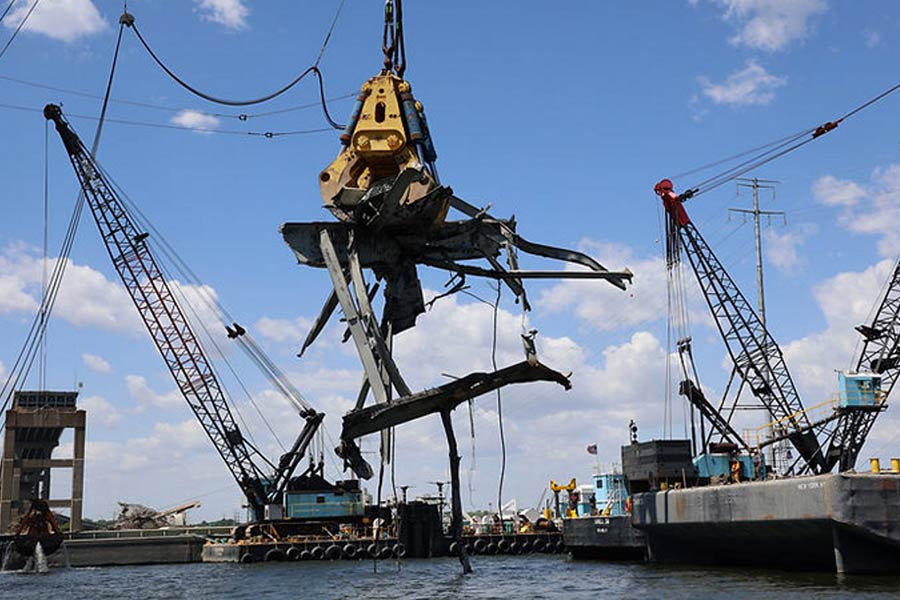The Baltimore port, one of America's largest shipping hubs, formally reopened on Wednesday, 11 weeks after the Francis Scott Key Bridge collapsed when it was struck by a massive cargo ship mostly manned by Indians.
The 2.6-km-long, four-lane Francis Scott Key Bridge over the Patapsco River collapsed on March 26 after the 984-foot ship ‘Dali’ crashed into it. The crew onboard the crippled ship included 20 Indians and one Sri Lankan.
“I made clear that my Administration would move heaven and earth to reopen the Port of Baltimore – one of our nation's largest shipping hubs. Today, thanks to the tireless work by the men and women in the Unified Command, the full navigation channel is now open to all vessel traffic, allowing a full return of commerce to the Port of Baltimore,” US President Joe Biden said in a statement.
Disruptions from the March 26 bridge collapse have cost the Baltimore region’s economy about USD 1.2 billion, said Anirban Basu, an economist with Sage Policy Group, a Baltimore-based consulting firm, told The Washington Post.
In 2023, the Baltimore Port ranked first in the US in handling automobiles, light trucks, farm and construction machinery, as well as imported sugar and gypsum, according to the Maryland government’s website.
Working at a war footing, federal and State authorities restored the federal channel to its original 700-foot width and 50-foot depth.
The collapse of the bridge resulted in the death of six construction workers. Crews have had to remove 50,000 tonnes of wreckage, the US Army Corps of Engineers said.
Some 2,000 salvage responders, including hundreds of specialists from around the world, worked to remove the heap of steel and concrete with the help of a fleet of tugboats and more than a dozen floating cranes.
Crews removed roughly 50,000 tonnes of wreckage from the Patapsco River, according to a press release from Unified Command, a group of agencies that led the response to the bridge collapse.
The crash left the vessel trapped under the wreckage in the Patapsco River.
Last month, the Dali was moved by tugboats, marking one of the last steps needed to clear up shipping routes before Monday's reopening.
The FBI and US Coast Guard are investigating the incident.
Last month the National Transportation Safety Board said the Dali lost power several times before it rammed into the bridge.
Biden said within minutes of the collapse of the Francis Scott Key Bridge, the US Coast Guard arrived on the scene. They established a Unified Command on the same day to support rescue and recovery operations and worked with the Army Corps of Engineers around the clock to remove the wreckage from the channel.
“My Departments of Transportation and Labor and the Small Business Administration worked hand-in-hand with federal and state partners to limit supply chain impacts and keep costs down for Americans, and to support impacted workers and small businesses,” he said.
“Our hearts remain with the families of the victims of the bridge collapse, and we will continue to stand with the community throughout this period of recovery,” Biden said.
One of our four key directives in the wake of the Key Bridge collapse has been to fully clear the federal channel, Maryland Governor Wes Moore told reporters.
"Today, we bring that directive to completion. By working together, we turned months into weeks – and bounced back faster than many could have ever anticipated," he said.
On Monday, the Army Corps announced the 700-foot (213m) wide channel has been reopened in the Patapsco River.
Except for the headline, this story has not been edited by The Telegraph Online staff and has been published from a syndicated feed.










